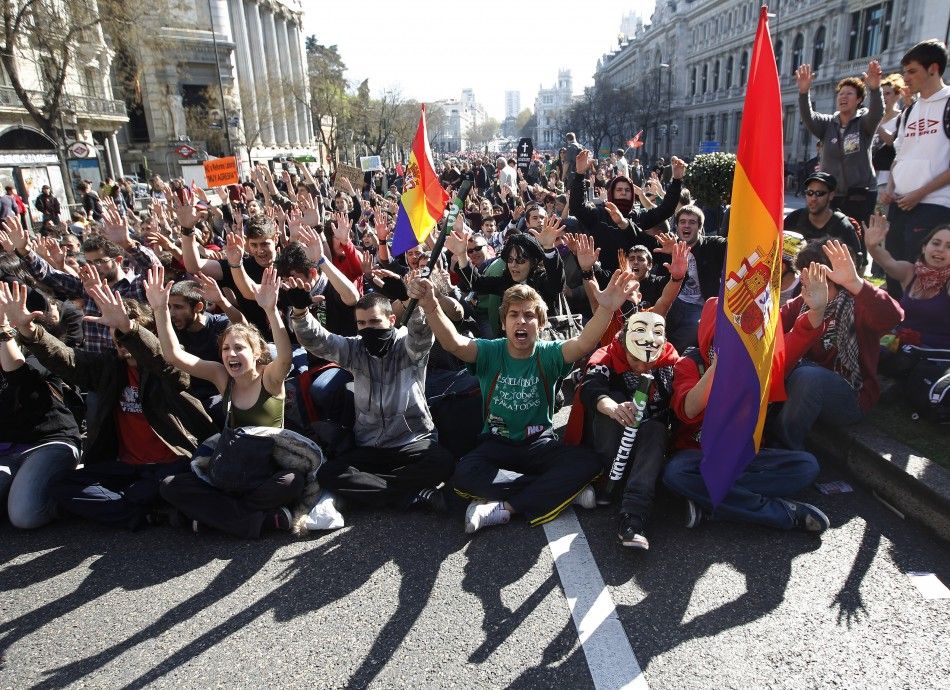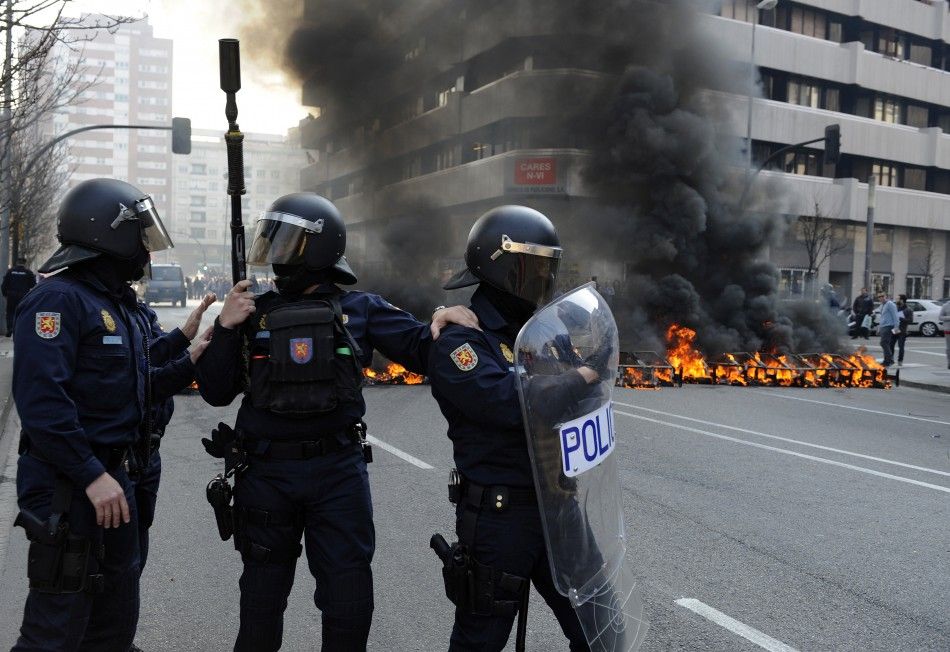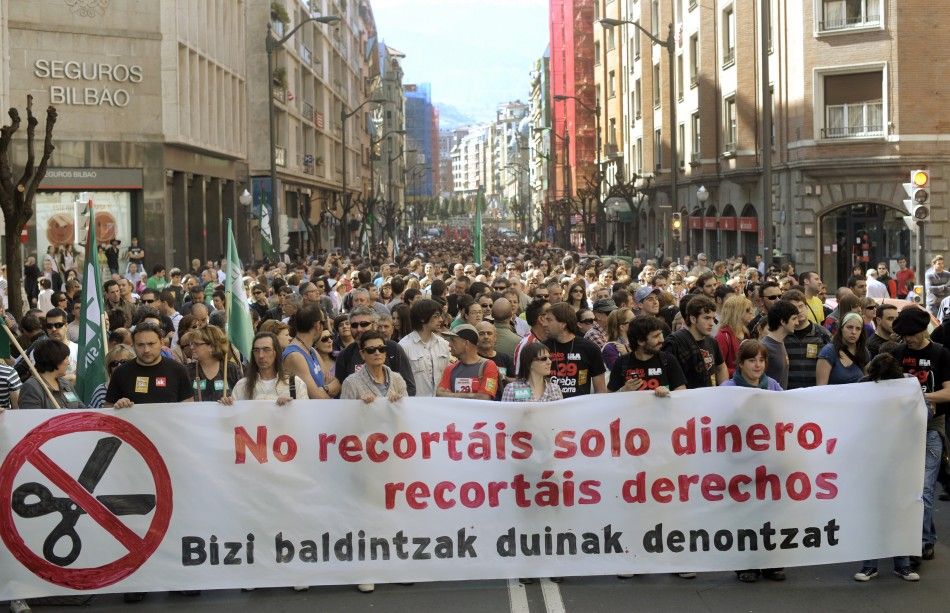Spain Strike: 58 People Detained, 9 Injured, Is It The New Greece? [PHOTOS]
Union workers held a general 24 hour strike across Spain Thursday to protest austerity cuts, labor reforms, and its record 23 percent unemployment rate.
Unions demanded the 100-day-old conservative government to scale back on labor reforms, promising more civil unrest by May 1 if they failed to comply.
The government quickly refused, and have downplayed the strike in general, saying that the reforms will create more jobs in the future.
There is no stopping on the path to reform, Labor Minister Fatima Banez said.
Changes in labor laws include making it easier for companies to lay off their employees and cut wages.
We are going through a really hard time, suffering, said protester Angel Andrino to the Associated Press. The rights that our parents and grandparents fought for are being wiped away without the public being consulted.
Fifty eight people were detained by police and nine were injured in incidents along picket lines. On Gran Via in Madrid, businesses closed down their stores as protesters marched the length of the avenue.
General Workers Union Secretary General Candido Mendez said 77 percent of workers took part in the strike, even more than during a walkout in 2010.
This strike has been an unquestionable success, said General Workers Union Secretary General Candido Mendez to the Associated Press.
Spain is experiencing its second recession in three years, with almost a quarter of its workforce unemployed. That is more than double the European average, according to the New York Times.
Union strikers Thursday were opposing austerity measures passed by the Spanish government to appease the European Union. Lawmakers are trying to reduce Spain's deficit within EU limits.
More deduction reducing legislation is set to be passed on Friday.
International investors fear Spain will go in the way of Greece, Ireland, and Portugal and require a bailout in the near future.
Investors are worried about the possible widespread unrest that could hit the country following more austerity measures, just like in Greece.
Management professor Jose Ramon Pin of IESE Business School told the Associated Press that the Spanish people know that the country needs an economic makeover, though they are reluctant to admit it.
This country is in no mood for taking to the streets, Pin said.
It is the first strike since conservative Prime Minister Mariano Rajoy took office 3 months ago. Rajoy promised to lower the unemployment rate and fix the country's finances.




© Copyright IBTimes 2024. All rights reserved.











